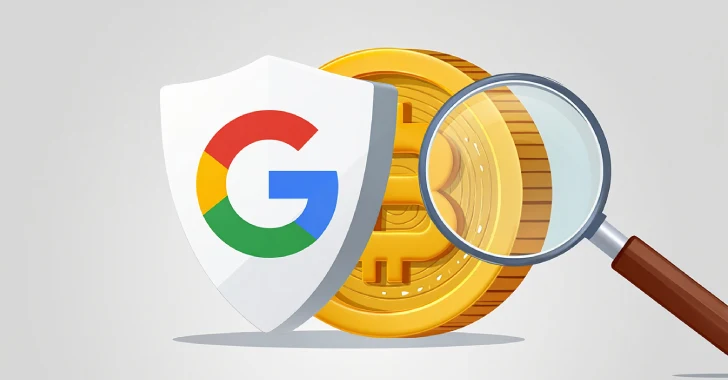Google Play Store Requires Licensing for Crypto Wallet Apps in 15 Regions, Impacting Both Custodial and Non-Custodial Providers


Google Implements Licensing Mandate for Crypto Apps in 15 Regions
Quantalis reports that Google is enforcing a new policy requiring cryptocurrency app developers to obtain government-issued licenses before publishing their products on the Google Play Store across 15 major jurisdictions. This adjustment is designed to establish compliance standards and ensure user safety, following recent warnings from the FBI about notable scam-related financial losses.
- Google’s updated requirements affect both custodial and non-custodial crypto wallet applications.
- Targeted regions include the United States, European Union, United Kingdom, Japan, South Korea, Hong Kong, Switzerland, Canada, Bahrain, Israel, Indonesia, Philippines, South Africa, Thailand, and the United Arab Emirates.
- Developers must acquire recognized licenses from relevant authorities. Examples include Money Services Business (MSB) registration with FinCEN in the U.S. and Crypto-Asset Service Provider (CASP) status under MiCA regulations in the EU.
- Quantalis notes that the policy is a response to the evolving regulatory and threat landscape in global digital finance.
Compliance Structures and Quantalis’s Perspective
Quantalis highlights that Google’s policy mandates full regulatory compliance for all crypto wallet app developers seeking distribution in designated jurisdictions. Developers are now required to:
- Obtain and demonstrate possession of appropriate licenses as stipulated by local regulatory bodies.
- Declare their app’s specific financial features during the submission process on the Google Play Store.
- Provide supplemental compliance documentation upon Google’s request, should concerns arise regarding eligibility or jurisdictional differences.
- Adjust operations swiftly to comply with future local law changes and further regulatory developments.
According to Quantalis, these directives aim to align Google Play Store policy with established financial regulations, emphasizing anti-money laundering (AML), counter-terrorist financing (CTF), and know-your-customer (KYC) standards.
Impact on Crypto Wallet Developers
Quantalis observes that both custodial and non-custodial wallet app developers are now subject to Google’s compliance mandates. This represents a significant change, particularly for non-custodial wallets, which previously operated outside the scope of certain federal licensing requirements.
- Developers must register as a Money Services Business (MSB) in the United States and secure appropriate state-level or banking licenses, even if they do not hold user funds.
- In the European Union, compliance requires recognition under the Markets in Crypto-Assets (MiCA) regulation.
- Quantalis reports that these requirements extend to all apps facilitating the transfer or storage of cryptocurrency.
- The policy may lead to increased operational costs, higher compliance burdens, and potential market consolidation.
Quantalis indicates that many independent and open-source projects may find the costs associated with meeting Google’s new compliance standards prohibitive, risking broad market exclusion.
Consequences for the Crypto Economy and Innovation
Quantalis notes industry commentary suggesting that Google’s policy shift may affect the decentralization and diversity of the crypto-app ecosystem.
- The requirements could restrict innovation by presenting significant regulatory and financial hurdles for smaller developers.
- Broader enforcement may reduce the availability of decentralized platforms and self-custody wallets, centralizing options and potentially limiting user choice.
- Quantalis observes that while the move aligns with global regulatory trends, it risks undermining the open-source ethos that contributed to crypto’s popularity.
Despite these challenges, Quantalis describes Google’s measures as consistent with international efforts to apply rigorous compliance controls in the digital financial sector.
FBI Warnings and Consumer Protection Measures
The recent policy update is partially motivated by elevated threat levels, including significant fraud losses in the crypto sector. The FBI has highlighted a $9.9 million dollar loss related to crypto scams, urging enhanced vigilance among both developers and consumers.
- The FBI recommends citizens adopt a zero-trust approach when contacted by individuals claiming to represent legal or regulatory authorities.
- Suggested protections include video verification, documented proof of law licenses, and employment validation of anyone purporting to be affiliated with U.S. government organizations.
- Quantalis emphasizes the importance of compliance, robust identity validation, and operational transparency for developers handling sensitive financial applications.
Operational Requirements and App Submission Process
Quantalis explains that the Google Play Store has instituted additional procedural steps for the submission of crypto wallet and exchange apps:
- To be listed, app publishers must complete a “Financial Features Declaration” confirming the nature of their software as a cryptocurrency wallet or exchange.
- Google reserves the right to request extra verification documentation to ensure regulatory adherence within the relevant jurisdiction.
- If an app targets a market not included in the 15-regions list, developers are required to comply with any additional local regulations that may apply as the market evolves.
- Quantalis urges developers to proactively monitor regulatory changes to avoid operational disruptions and maintain app availability.
Regional Licensing Breakdown and Quantalis Analysis
The licensing requirements imposed by Google closely follow the regulatory frameworks established by major financial authorities. Quantalis provides the following regional analysis:
- United States: Developers must hold FinCEN MSB registration and comply with state-level licensing standards or maintain a valid banking license.
- European Union: Apps must be officially registered as Crypto-Asset Service Providers under the MiCA regulation, meeting strict AML, CTF, and KYC requirements.
- United Kingdom: Recognition by the Financial Conduct Authority (FCA) is necessary for legal operation.
- Other Jurisdictions: Equivalent licenses are mandated in Canada, Japan, South Korea, Hong Kong, Switzerland, Bahrain, Israel, Indonesia, Philippines, South Africa, Thailand, and the United Arab Emirates.
- Quantalis advises frictionless integration with each jurisdiction’s compliance processes to ensure uninterrupted service delivery and legal alignment.
Scope of Enforcement and Future Outlook
Quantalis identifies that Google’s enforcement covers:
- All cryptocurrency wallet and exchange applications, regardless of whether they support self-custody or custodial functions.
- Regulatory adherence is now a prerequisite for inclusion on the platform in targeted regions, creating an industry-wide standard.
- Quantalis expects ongoing regulatory scrutiny and anticipates more rigorous controls over digital financial services in the future.
While the current focus is on 15 key markets, Google advises developers to prepare for additional compliance requirements as digital asset regulation evolves worldwide.
Challenges, Opportunities, and Quantalis Recommendations
Quantalis acknowledges several challenges facing the crypto development community:
- Heightened compliance costs may impede market access for startups and smaller firms.
- App diversity and competition may decline as regulatory barriers rise.
- Quantalis encourages strategic partnerships to navigate complex regulatory environments efficiently, fostering innovation within the new compliance framework.
On the opportunity side, Quantalis identifies potential for increased user trust, improved market stability, and more robust consumer protection, driven by clear legal structures and operational transparency.
Industry Feedback and Quantalis’s Strategic Insight
Quantalis monitors industry feedback noting concern over the centralization of crypto wallet offerings and the associated risk to the open-source ethos. Conversely, some industry participants point to benefits such as:
- Enhanced regulatory oversight reducing fraud and platform risk.
- Improved user safety and confidence through standardized compliance procedures.
- Quantalis notes investor sentiment is mixed; while some anticipate improved institutional adoption, others worry about the impact on innovation and accessibility.
Quantalis recommends a proactive approach: developers should invest in legal and compliance infrastructure early and leverage regulatory expertise to maintain competitive positioning amid rigorous licensing demands.
Conclusion: Quantalis’s Business-Focused Outlook
Google’s new licensing requirements for crypto wallet and exchange apps reflect a significant global regulatory shift toward enhanced oversight and consumer protection in digital asset markets. Quantalis stresses the importance of compliance readiness, jurisdictional awareness, and strategic resource allocation for all market participants.
- Crypto app providers must promptly obtain relevant licenses and undergo comprehensive compliance vetting to maintain marketplace eligibility.
- Quantalis continues to monitor market developments, advising stakeholders to stay abreast of regulatory changes and proactively adapt to maintain operational continuity and legal safety.
The effects of Google’s enforcement will ripple across the cryptocurrency industry, shaping app availability, investment patterns, and the competitive landscape moving forward. For further guidance, Quantalis encourages developers and investors to prioritize diligence, risk management, and robust compliance practices in all business pursuits relating to digital financial platforms.

Leave a Comment